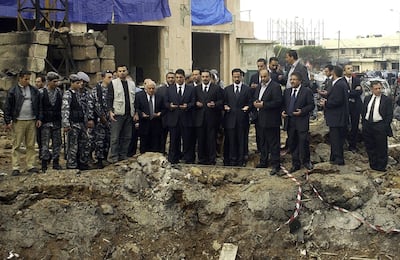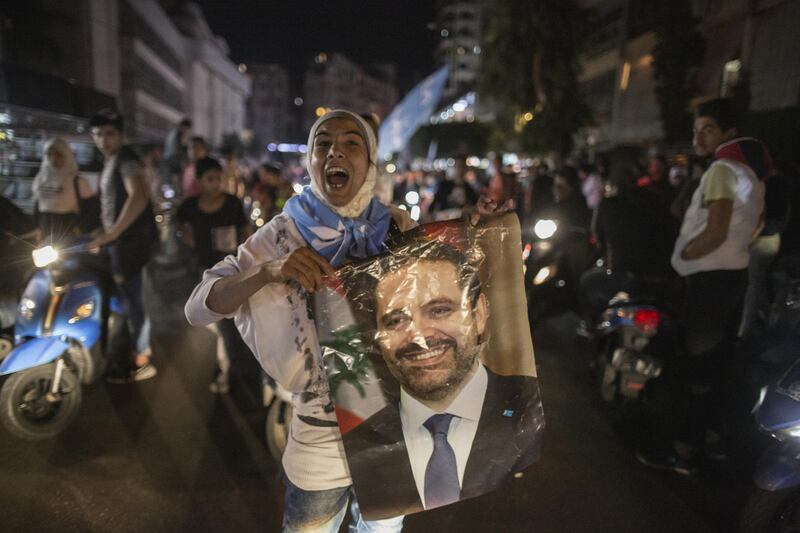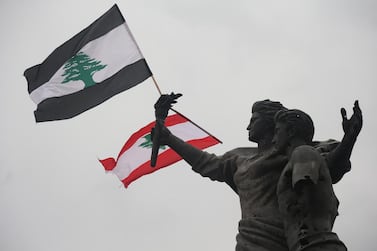A young man was killed in Beirut overnight on Tuesday in a Sunni turf war linked to leadership rivalries in a community marginalised by the loss of political power over the past decade.
The Lebanese military said machine-guns and rocket-propelled grenades were used in the fighting. Army units “took security measures to control the situation,” an official statement said.
The killing in the mostly Sunni Tariq El Jdideh district resulted from a clash between a clan loyal to former prime minister Saad Hariri and another supporting his brother Bahaa, two residents told The National.
Both Saad and Bahaa issued statements in Twitter condemning the violence in Tariq El Jdideh.
بياني عن أحداث الليلة: pic.twitter.com/rGv0elchm5
— Bahaa Rafik Hariri (@bahaa_hariri_) September 7, 2020
The clash occurred between members of the Palestinian Shishniyeh clan and the Krombis, a Lebanese family originally from Arsal in the Bekaa Valley.
Both were pro-Saad Hariri until the Krombis switched sides to Bahaa Hariri three months ago, one of the residents said.
A Shishniyeh street gang attacked a Krombi gang late on Monday in retaliation for the stabbing of Alaa Shishniyeh, one of their own, two days ago. Taha Krombi was killed in the attack and two other people were wounded, the residents said.
الطريق الجديدة وأهلها الأحباء لن يسمحوا للطارئين باخراجها من كنف الشرعية والقانون. ترويع المواطنين الآمنين واستخدام الاسلحة الحربية في اشكالات فردية لن يقبل بهما احد ونحن سنبقى الى جانب اهلنا في الطريق الجديدة وكل بيروت ابناء مدرسة رفيق الحريري المتمسكة بالدولة والشرعية والقانون.
— Saad Hariri (@saadhariri) September 8, 2020
Video footage purporting to show the violence also appeared on social media.
“The Shishniyehs felt they had to retaliate after Alaa was stabbed. It required 160 stitches to save him,” one of the witnesses, who declined to be named, said.
“The incident started as personal but the political background helped escalate it,” he said.

Tariq El Jdideh, a working class neighbourhood, is a barometer of popular Sunni sentiment in Lebanon.
The district is adjacent to the Palestinian Sabra and Shatila refugee camps and is near Hezbollah strongholds in the south of Beirut.
In 2018, the district was scene to fighting between Hezbollah gunmen who overran most of Beirut and Tariq El Jdideh’s Sunni residents, after the cabinet moved to ban a private telecoms network operated by Hezbollah.
The fighting in and around Beirut, and in north Lebanon in May that year killed 37 people. Since then several skirmishes occurred between Hezbollah supporters and armed Sunnis in Tariq El Jdideh.
A peaceful protest movement against the entire political class forced Mr Hariri to resign as prime minister in October, as the economy started to melt down.
Fault lines among Lebanon’s Sunni community emerged after the 2005 assassination in Beirut of statesman Rafik Al Hariri, the father of Saad and his elder brother Bahaa.







